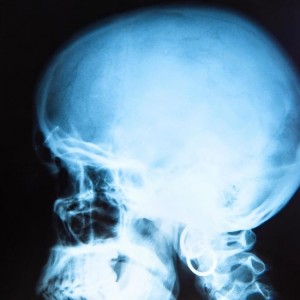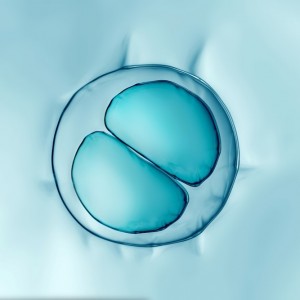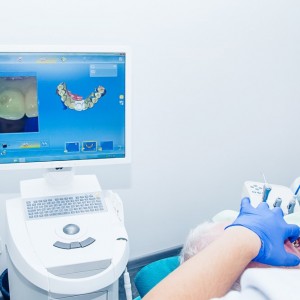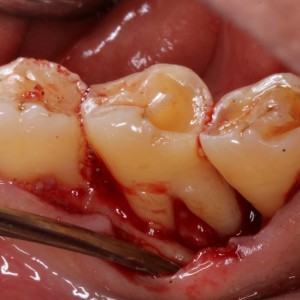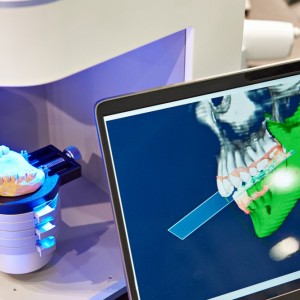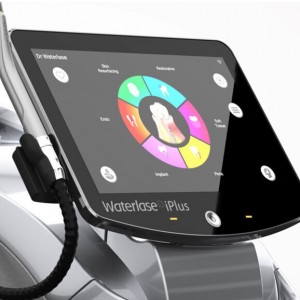
Stem cells in dentistry
Lara Figini
The characteristics of a stem cell are the potential for multidifferentiation (ability to differentiate into different cell types) and the capacity for self-renewal (ability to generate daughter stem cells and maintain pools of resident stem cells throughout the life of the tissue). We know that most tissues in the oral cavity contain stem cells. Stem cells can be classified in 2 main ways. The first is based on their differentiation potential: totipotent, pluripotent and multipotent stem cells. A totipotent stem cell can form all embryonic cells or extraembryonic tissues in our body. In other words, it can create a completely new organism. The pluripotent stem cell can form all tissues in our body, but cannot differentiate into extraembryonic tissues such as the placenta. A multipotent cell has more restrictions and can only form a specific number of tissues. The second way to classify stem cells is based on their original lineage: hematopoietic, epithelial or mesenchymal stem cells (MSCs). Deregulation of these pathways can lead to disorders including the risk of developing cancer.
Materials and methods
In a descriptive study, published on JADA, December 2023, the authors discussed data from comparative studies and analyzes found in the literature and reviewed articles focused on the identification and characterization of oral stem cells.
Results
All oral tissues, except enamel, dentin and cementum, contain stem cells throughout life. These stem cells self-renew to maintain a pool of cells that can be activated for terminal replacement of differentiated cells (e.g. odontoblasts) or to enable wound healing (e.g. of a dentin bridge in pulp exposures and tissue healing periodontal disease after surgery). Additionally, dental stem cells can differentiate into functional blood vessels and nerves. Early clinical studies demonstrated that transplantation of dental pulp stem cells into disinfected necrotic teeth allowed recovery of dental vitality and vertical and horizontal root growth in immature teeth with incomplete root formation.
Conclusions
From the data of this study, which must be confirmed in other similar studies, it can be concluded that dental stem cells can produce dentin and bones, as well as differentiate into blood vessels and nerves. These results open the door to different applications of these cells in the dental field.
Clinical implications
As a result of these revolutionary discoveries, stem cell banks now also offer services for the cryopreservation of dental stem cells. The future use of stem cells in dental therapies will depend on the collaboration between doctors and researchers to implement projects capable of understanding whether these treatments are safe, effective and clinically feasible.
 Related articles
Related articles
Much like EMTs rushing to the scene after an accident, stem cells hurry to the site of a skull fracture to start mending the damage. A new finding has uncovered the signaling mechanism that triggers...
Oral pathology 24 October 2025
Isolation and characterization of dental pulp stem cells from a supernumerary tooth
Dental pulp stem cells (DPSCs) were primarily derived from the pulp tissues of primary incisors and permanent third molar teeth, whereas no report to our knowledge has yet been documented on deriving...
By UCLA School of Dentistry News
Dr. Le is the Norman Vine Endowed Professor and chair of the Department of Oral and Maxillofacial Surgery / Pharmacology at the University of Pennsylvania School of Dental Medicine and the Department...
Biomimetic has emerged as a multi-disciplinary science in several biomedical subjects in recent decades, including biomaterials and dentistry.
Periodontology 01 December 2025
Ceramic abutments--a new era in achieving optimal esthetics in implant dentistry.
In the visible dental region in particular, implant-prosthetic restorations filling single-tooth gaps make exacting demands on function and esthetics.
 Read more
Read more
Digital Dentistry 05 December 2025
Artifact-resistant superimposition of digital dental models and cone-beam computed tomography images
Combining the maxillofacial cone-beam computed tomography (CBCT) model with its corresponding digital dental model enables an integrated 3-dimensional (3D) representation of skeletal structures,...
Editorials 05 December 2025
Rural dental residency program receives a lifeline from donor organizations
When federal funds to HSDM’s rural residency program went unpaid, a coalition of regional partners stepped up to secure the program’s future.
Products 05 December 2025
VideaHealth, the leading dental AI platform, recently announced the appointment of Austen Asadorian as Chief Revenue Officer. With two decades of experience scaling high-performing organizations,...
News 05 December 2025
VELMENI, a global leader in artificial intelligence (AI) solutions for dental care, and Jazz Imaging, an innovative provider of dental imaging systems, recently announced a strategic partnership...
News 05 December 2025
BIOLASE, the global leader in dental lasers, announced its participation in the 2025 Greater New York Dental Meeting (GNYDM), taking place November 28–December 3 in New York City.



